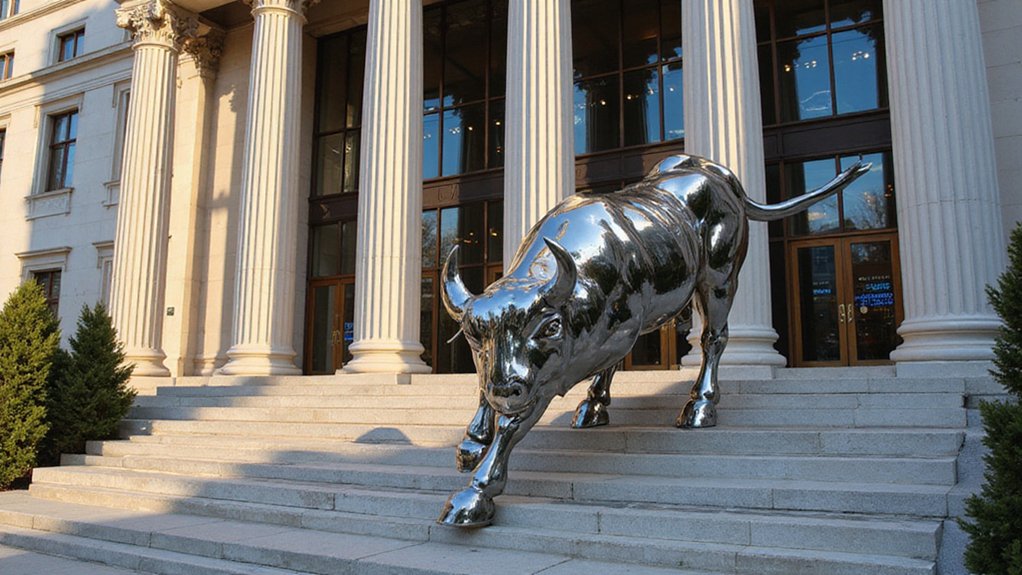Ledger’s CEO has drawn a line in the sand that would make even the most territorial venture capitalist blush: the hardware wallet giant will go public in the United States or not at all. This declaration comes as the French company sits comfortably on $575 million in funding across six rounds, positioning itself for what could be one of 2025’s most watched crypto IPOs.
America or bust: Ledger’s audacious IPO ultimatum positions the crypto hardware titan as 2025’s most uncompromising public offering contender.
The timing appears calculated rather than coincidental. With Circle, Gemini, and other crypto darlings planning their own public debuts, Ledger’s all-or-nothing stance reflects a shrewd reading of market dynamics. Having sold 8 million hardware wallets globally—securing roughly 20% of all crypto assets—the company commands sufficient market presence to make such demands without appearing desperate.
What makes Ledger’s position particularly intriguing is its European origins coupled with this decidedly American ambition. The CEO’s geographic inflexibility suggests that European capital markets, despite their proximity and familiarity, simply cannot deliver the liquidity and investor enthusiasm that characterize US exchanges. One might wonder whether this represents pragmatic market assessment or strategic theater designed to court American institutional investors.
The company’s financials support such bold positioning. Profitable since inception (a rarity in the crypto space that borders on the miraculous), Ledger generates revenue through both hardware sales—ranging from €79 to €399 per unit—and software services that comprise half of total revenues. This diversified income stream provides the stability that public market investors increasingly demand from crypto-adjacent companies. The company’s commitment to innovation is evidenced by key strategic hires, including Tony Fadell, the former Apple executive brought on to enhance product design.
Ledger’s $100 billion aspirations extend beyond mere hardware manufacturing into broader cybersecurity territories, suggesting management views the IPO as a launching platform rather than an exit strategy. With Samsung, Digital Currency Group, and Morgan Creek Capital among its 68 investors, the company already enjoys institutional credibility that should translate favorably to public markets. This institutional backing is further strengthened by the fact that Ledger maintains its status as a unicorn company with a valuation of $1.3 billion, placing it among the elite tier of private companies eyeing public markets. As blockchain platforms like the Kaanch Network emerge with impressive transaction speeds of 1.4 million per second, Ledger’s focus on security and hardware infrastructure becomes even more critical for supporting next-generation Web3 applications.
The regulatory tailwinds under the current US administration have created an environment where crypto IPOs can realistically expect favorable reception. Ledger’s ultimatum, consequently, represents less of a gamble and more of a calculated bet on American exceptionalism in financial markets—a wager that history suggests usually pays off.









